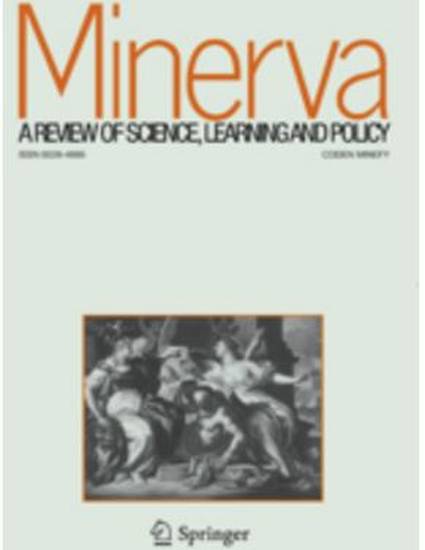
Article
Equity and excellence in research funding
Minerva
(2011)
Abstract
The tension between equity and excellence is fundamental in science policy. This tension might appear to be resolved through the use of merit-based evaluation as a criterion for research funding. This is not the case. Merit-based decision making alone is insufficient because of inequality aversion, a fundamental tendency of people to avoid extremely unequal distributions. The distribution of performance in science is extremely unequal, and no decision maker with the power to establish a distribution of public money would dare to match the level of inequality in research performance. We argue that decision-makers who increase concentration of resources because they accept that research resources should be distributed according to merit probably implement less inequality than would be justified by differences in research performance. Here we show that the consequences are likely to be suppression of incentives for the very best scientists. The consequences for the performance of a national research system may be substantial. Decision makers are unaware of the issue, as they operate with distributional assumptions of normality that guide our everyday intuitions.
Keywords
- research excellence,
- distributional equity,
- science policy,
- power law,
- Lotka
Disciplines
Publication Date
June, 2011
Publisher Statement
The final publication is available at www.springerlink.com: http://www.springerlink.com/openurl.asp?genre=article&id=doi:10.1007/s11024-011-9170-6
Citation Information
Diana M Hicks and Sylvan Katz. "Equity and excellence in research funding" Minerva Vol. 49 Iss. 2 (2011) Available at: http://works.bepress.com/diana_hicks/6/
